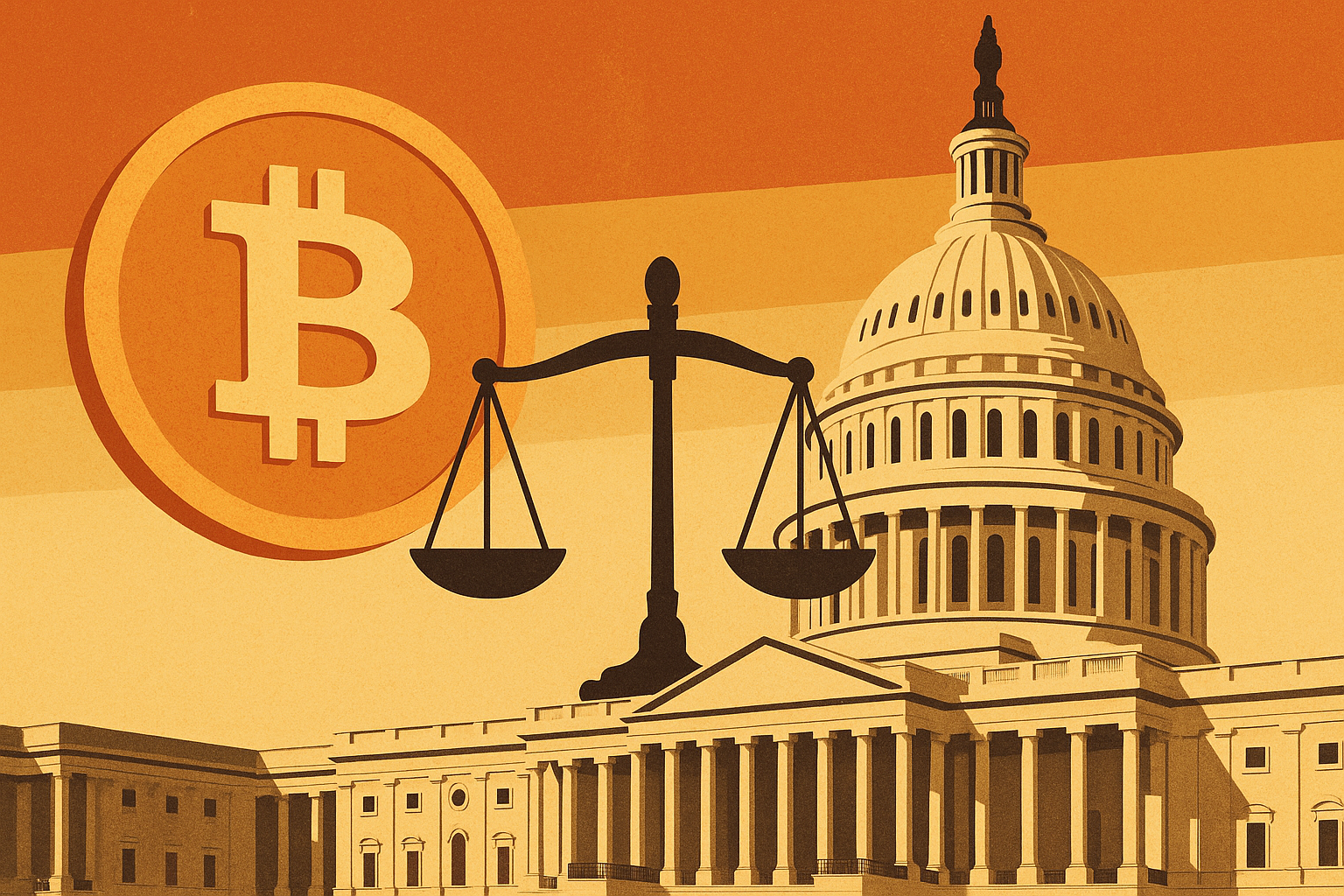All eyes are on Capitol Hill this week as U.S. lawmakers take center stage in what’s being dubbed “Crypto Week”—a high-stakes legislative showdown that could define the future of digital assets in the United States. The U.S. House of Representatives is reviewing a trio of pivotal bills that aim to establish regulatory clarity for stablecoins, block the introduction of a Federal Reserve–issued digital currency (CBDC), and lay the groundwork for digital asset innovation through the proposed GENIUS Act.
For investors, fintechs, and the broader crypto ecosystem, this marks a potentially historic moment. Regulatory uncertainty has long been cited as a barrier to institutional adoption and innovation in the digital asset space. With global competitors like the EU and UAE already advancing crypto legislation, the outcome of these bills could either fast-track the U.S. as a blockchain innovation leader—or leave it further behind.
Inside “Crypto Week”: What’s on the Table?
1. The GENIUS Act (Government-Enabled National Innovation for U.S. Security Act)
This bill aims to promote U.S.-led blockchain and crypto innovation, especially in sectors such as finance, identity, and supply chain. It includes measures to reduce regulatory overlap, provide clear definitions for digital asset types, and incentivize responsible development.
2. The Digital Asset Market Clarity Act
A long-awaited framework that delineates regulatory jurisdiction between the Securities and Exchange Commission (SEC) and the Commodity Futures Trading Commission (CFTC). The bill aims to clarify when a digital asset is a security versus a commodity, a distinction that has been at the heart of ongoing lawsuits and compliance confusion.
3. The Anti-CBDC Surveillance State Act
Perhaps the most controversial of the three, this bill seeks to prohibit the Fed from launching a central bank digital currency (CBDC) for retail use. Proponents argue it’s necessary to protect financial privacy and prevent government overreach, while critics warn it could undermine the U.S.’s ability to modernize payment infrastructure.
Why This Matters for Investors
The implications of “Crypto Week” extend far beyond Washington. Regulatory clarity is widely considered a key catalyst for institutional capital inflows into crypto markets. According to CoinShares, over $50 billion has flowed into U.S. spot Bitcoin ETFs in 2025 alone—despite regulatory ambiguity. Passage of these bills could amplify that trend.
“With proper legislation, we could see an explosion of crypto-linked products and broader fintech innovation,” said Paul Atkins, SEC Commissioner and outspoken proponent of the GENIUS Act. “Without it, we’re operating in a legal gray zone that stifles capital formation.”
Meanwhile, companies like Coinbase ($COIN), Ripple, and Circle are watching closely. A stablecoin framework could give USDC and USDT more secure footing in traditional finance. A clear line between security and commodity status could also remove a major legal overhang on Ethereum ($ETH), which has long straddled regulatory definitions.
Trends and Risks to Monitor
- Legislative Gridlock: Despite bipartisan momentum, political divisions could stall or dilute the bills’ effectiveness. The 2025 election cycle may also politicize aspects of the Anti-CBDC bill.
- SEC Enforcement: Even with new laws, SEC enforcement under Paul Atkins or a future chair could vary significantly, influencing how quickly markets adopt new rules.
- International Alignment: Any U.S. legislation that sharply diverges from global standards (like MiCA in Europe) may create friction for cross-border platforms and crypto firms.
Investors should also note that crypto markets remain highly sensitive to headlines. In early July, Bitcoin rose nearly 6% intraday following positive legislative leaks related to the GENIUS Act. If any of the bills fail or are significantly altered, volatility could spike.
Key Investment Insight
Regulatory frameworks are the bridge to mass adoption—and the outcome of “Crypto Week” could determine whether that bridge holds or collapses. Investors should:
- Track House floor votes, committee amendments, and SEC commentary throughout the week.
- Position for upside in crypto infrastructure firms—especially exchanges, custodians, and payment platforms if pro-innovation legislation passes.
- Diversify across digital asset types, as some tokens may benefit more than others depending on their regulatory classification.
Whether you’re watching the charts or reading the Congressional docket, this is a critical week for crypto’s future in the U.S. For fast, focused coverage of the intersection between policy and markets, trust MoneyNews.Today to keep you ahead of the curve.





